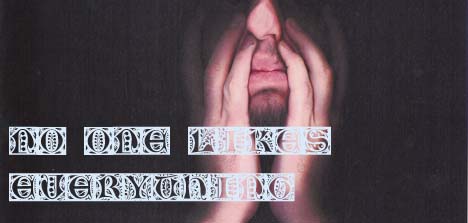For childhood businesses, the lemonade stand is a hoary trope. Simply hearing the phrase, one can already picture the table, pitcher and reversed letters.
But for Nicholas Martin, they're also a way to make a misleading case against governmental regulation.
Martin, the head of an organization that reeks of astroturf (no website, the only legitimate mention on the web comes from Sourcewatch noting another astroturf organization Martin belonged to), the Consumer Health Education Council in Indianapolis, complains that his daughter is only allowed to operate a business on public grounds one day a year, and that the health department would prohibit unlicensed food vending.
Of course, he doesn't bother to get any names or anything that might make the quotes verifiable.
Instead, he proceeds with the kind of blind privilege that entitles him to complain endlessly about regulations that generally make sense if considered in the light of the equality of the law — would he want everyone who wants to sell whatever food or drink they want to be able to do it anywhere? His strongest complaint is that the zoning laws officially prohibit him from having the stand on his lawn, but if that's really a problem, change the laws.
It's also disingenuous to pretend that these laws would meaningfully restrict his freedom — the health department says it would only respond to a complaint, and if his daughter was poisoned by someone else's lemonade stand, he'd be the first to complain. Rather, they function more like laws against speeding, where the laws themselves are only sporadically enforced, especially against the most egregious violators, but everyone still speeds. Just not by as much as they might otherwise.
Why the Los Angeles Times decided to run a facile anti-regulation piece from Indianapolis is beyond me, but next time I would hope that an editor would take a brief look at it before signing off on thin claims, misleading anecdotes and transparent propaganda from an anti-government activist.

2 comments:
There is nothing misleading about my piece, which you could have verified by contacting me. Through some painless googling you could also have discovered that the Consumer Health Education Council has been around since the 1980s.
Since the piece ran there have been several incidents of lemonade stands being shut down by authorities. But more importantly, the regulations prevent adult entrepreneurs from offering services and selling products. Unfortunately, there are reactionaries who oppose the liberalization of consenting economic activities among adults.
Well, there was plenty misleading about your piece, which I verified by reading it.
And just because the Consumer Health Education Council has been around since the 1980s doesn't mean it's not astroturfing, a phrase that's been around since the '80s.
In fact, the first result of a painless google search is Sourcewatch's article on the American Council on Science and Health, an astroturf organization.
As far as lemonade stands being shut down, well, you know, one of those things about being a journalist and not a flak is that you could provide at least a couple of links to support that.
Further, as long as we're talking — those regulations also prevent health risks and deaths. Reactionaries, a term usually reserved for conservative revanchists, generally want to remove regulations in order to socialize risk and privatize profit.
But I'm glad that the Consumer Health Education Council will be fighting to overturn drug laws that prevent consenting adults from enjoying economic and recreational activities.
Post a Comment